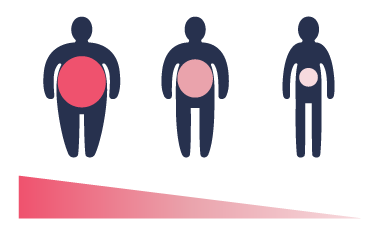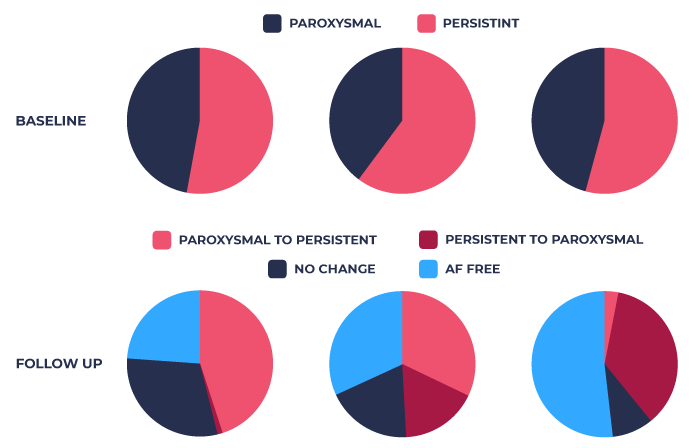I have previously written about the link between weight and atrial fibrillation and more specifically obesity and atrial fibrillation. This is an important subject, and there have been several new studies that have helped explain more about the connection between excess weight and atrial fibrillation.
To dive into this topic, we will break it into three components: The connection between being overweight and your chances of gaining atrial fibrillation, the connection between weight loss and its ability to reduce atrial fibrillation symptoms, and how weight loss affects the development of atrial fibrillation.
What Is The Relationship between Being Overweight and Developing Atrial Fibrillation
There are many studies that have shown a clear correlation between excess weight and the risk of atrial fibrillation. A major study of Australian researchers shows that the risk of atrial fibrillation increases by 8% for every BMI point over 27.
You can calculate your BMI by dividing your weight by your height (in meters) twice. For example: You are 1.75 m (ie 175 cm) tall and weigh 86 kg – You need to divide 86 divided by 1.75 = 49. Then you divide 49 by 1.75 = 28. This gives you a body-mass index (BMI) of 28. You can easily find an app on your mobile that can help with BMI calculation.
What Happens If I Lose weight?

The effect on Atrial Fibrillation
from weight loss

This figure shows what happens to your atrial fibrillation if you lose only very little weight, around 3%, or – if you weigh 80 kg – 2.5 kg, lose a moderate amount of weight (3-9%) and if you lose more than 10% of your weight. This figure only includes your risk if you are not receiving any treatment for your atrial fibrillation.
The results are fairly clear. It is possible to reduce your instances of atrial fibrillation by almost 50% if you lose 10% in excess weight. It should be noted that these figures only apply to individuals who are already overweight, if you have a healthy BMI you will not see benefits from weight loss.
These results can be further improved by undergoing treatment for atrial fibrillation. Studies have shown improved outcomes when treatment is combined with weight loss.
How Weight Loss Affects The Development of Atrial Fibrillation
If you are already experiencing repeated episodes of atrial fibrillation your condition will develop in one of three ways:
- You may have less atrial fibrillation.
- You may have more and longer episodes of atrial fibrillation.
- Your atrial fibrillation may become constant.

In this study, the researchers looked at how patients’ atrial fibrillation develops over time, depending on whether or not they lost weight, only lost a little (3-9% of their starting weight) or lost quite a lot (more than 10% of their starting weight).
As a starting point, approximately half of the subjects had constant atrial fibrillation and half had seizure / periodic also called paroxysmal atrial fibrillation. It was then investigated how many became free of atrial fibrillation over time (gray color); how many switched from seizure to constant atrial fibrillation (purple color); how many switched from constant to seizure atrial fibrillation (yellow color) and how many experienced no changes (green color).
The group with the greatest weight loss had around 52% of participants become free of atrial fibrillation and 32% switch from constant to occasional fibrillation. A small minority of 3% switched from seizure to constant flicker.
This is in stark contrast to the group who lose no weight. Only around 25% of this group became free of atrial fibrillation, and just 1% switched from a constant to occasional flicker. In many cases their condition worsened and 48% switched from a periodic to a constant flicker.
This demonstrates that weight loss has a significant impact upon the outcomes of a patient’s atrial fibrillation. Any patient, even those undergoing medication, would benefit from bringing their BMI into a safer range.
Key Takeaways:
- The risk of atrial fibrillation increases at a BMI greater than 27
- Overweight atrial fibrillation sufferers can achieve the best results by combining weight loss with medical treatment
- Development of atrial fibrillation slows down if you lose weight.